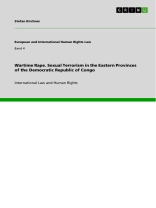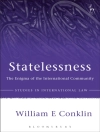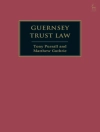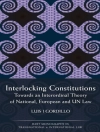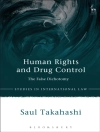Document from the year 2008 in the subject Law – European and International Law, Intellectual Properties, Université Paris-Sorbonne (Paris IV) , language: English, abstract: About 5.4 million people have been killed in the wars in the Democratic Republic of
Congo (D.R.C.), the former Zaire. 45, 000 die every month and hundreds of thousands of
women have been raped here in recent years. Wartime rapes are anything but new and have
been employed not only to terrorize the population but also as weapon of genocide in
Rwanda, Bosnia and Darfur. The Eastern Congolese provinces of North and South Kivu
have been affected by particular gruesome acts of violence and thousands of victims suffer
from rape-induced fistulae, ruptures of the walls which separate the victim’s vagina from
her rectum. According to UN staff and doctors in the region, all armed groups in the
region are involved in rapes and despite the 2002 Pretoria Accord which put an official end
to the war, attacks and rapes continue to this very day. Many survivors are forced out of
their homes and their families abandoned and left to fend for themselves. Therefore, apart
from medical treatment and psychological counseling, there is a strong demand for justice.
But due to the weak position of women in Congolese society, justice is much harder to get
by than medical treatment. Although the Congolese Penal Code and Military Penal Code
penalize these crimes, the reaction by the Congolese government to the atrocities remains
insufficient, making a solution based on Congolese criminal law unlikely. The practical
application of the D.R.C.’s domestic laws is found wanting and the law does not have the
deterrent effect which is required to prevent future atrocities, also due to the traditional
position of women in Congolese society continues to be reflected in the law: According to
Art. 448 of the D.R.C.’s family code, a married woman has to obtain her husband’s
permission to bring a case to court – which provides a major obstacle on the road to
justice. This book deals with the multidimensional aspects of the problem, which range
from medicine and psychology to social issues and the quest for justice. In the latter part
we will examine not only the background by looking at relevant rules of International
Human Rights Law and International Humanitarian Law but also look at legal responses to
these crimes both on a national level in the D.R.C. as well as on an international level and
with the question of how justice can be achieved for rape victims in a country ravaged by
war in which women continue to be second class citizens.
A propos de l’auteur
Docent Dr. Stefan Kirchner, Assessor jur., MJI is Associate Professor for Arctic Law at the Arctic Centre of the University of Lapland in Rovaniemi, Finland, and Adjunct Professor of Fundamental and Human Rights at the same university. His work focuses on the crossroads of human rights, the environment, shared areas, in particular the oceans and outer space, and international business and trade.
Prior to joining the Arctic Governance Research Group at the Arctic Centre he taught public law, international law and civil rights as Visiting Professor for Transitional Justice at the University of Turin (Italy), University Lecturer and Associate Professor for Fundamental and Human Rights, with a Special Focus on Indigenous Rights, at the Faculty of Law of the University of Lapland in Rovaniemi (Finland), Assistant Professor for International Law and Associate Professor for the Law of the Sea at Vytautas Magnus University in Kaunas (Lithuania), scientific employee in the Department of Public Law of the Faculty of Law of Georg-August-University in Göttingen (Germany), and Visiting Lecturer at the Institute of International Relations at Tars Shevchenko National University in Kyiv (Ukraine) and at the Faculty of Law Justus-Liebig-University in Giessen (Germany). Formerly a practising lawyer (Rechtsanwalt) in Germany for over a decade, he has worked on international trade law, corporate law, the law of the sea and human rights law, including cases at the German Federal Constitutional Court (Bundesverfassungsgericht), the German Federal Supreme Court (Bundesgerichtshof), the German Federal Administrative Court (Bundesverwaltungsgericht) and the European Court of Human Rights. In addition, he served as legal agent for Germany’s Federal Maritime and Hydrographic Agency, working on international shipping law, oil pollution and seafarer training issues. Dr. Kirchner is active in a number of professional organizations and is a regular reviewer for a number of academic publishing houses and academic journals, a member of editorial boards for several international academic journals and has written over one hundred academic articles and book chapters. He has been an evaluator of research projects for the Norwegian Academy of Sciences and Letters. Prior to his legal career he worked as a freelance journalist in Germany, as an emergency medical technician (Rettungssanitäter) for the German Red Cross and as a factory worker for a company producing transformers.
